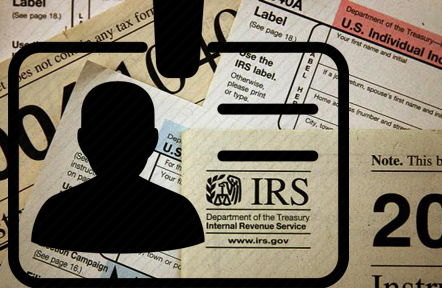Rational Middle Podcast: Payroll Fraud, Worker Misclassification and ID & Tax Explained
 On a recent Rational Middle podcast, Executive Producer Loren Steffy spoke with Mark Erlich, a Wertheim Fellow of Research on Misclassification and the Underground Economy at the Harvard Law School and former union leader. They examined payroll fraud and worker misclassification in the construction industry and discussed ID and Tax as a solution.
On a recent Rational Middle podcast, Executive Producer Loren Steffy spoke with Mark Erlich, a Wertheim Fellow of Research on Misclassification and the Underground Economy at the Harvard Law School and former union leader. They examined payroll fraud and worker misclassification in the construction industry and discussed ID and Tax as a solution.
Payroll fraud involves illegal practices committed intentionally by employers to avoid tax and insurance obligations. These have consequences not only for law-abiding workers and businesses, but taxpayers as well.
One type of payroll fraud that often occurs in the construction industry is misclassification. Misclassification occurs when an employer intentionally files his worker as an independent contractor when they really should be classified as an employee. This is done to lower labor costs. If employers classify someone as an employee, they’re responsible for Medicare and Social Security taxes, Texas unemployment taxes, Worker’s Compensation insurance, and overtime wages. If they label employees as independent contractors, there are no such obligations.
“In an industry like construction, which is where this practice really began in the 70’s and 80’s, you end up realizing somewhere in the neighborhood of 30% in labor costs savings. In a competitive industry like construction, that’s enormous. Materials cost the same for everyone, so if you can shave 30% on labor costs you put yourself at a substantial competitive advantage,” said Erlich while explaining how misclassification allows employers who don't play by the rules to outbid employers who do.
The other form of payroll fraud that is common in the Texas construction industry is the “underground economy” or cash compensation off the books. There are often multiple layers of sub-contractors, so general contractors have plausible deniability for the payroll fraud from which they directly benefit.
Unscrupulous employers often choose this route when employing unauthorized immigrants because it allows them to avoid tax, insurance, and criminal liabilities. One study estimates over half of construction workers in Texas are unauthorized immigrants.
There are many consequences resulting from this type of payroll fraud and misclassification. The workers involved are more easily taken advantage of and do not have workers comp for what can be a dangerous job. Workers and businesses who follow the rules and pay their taxes get undercut by those who don’t. Taxpayers are cheated because the federal and state governments are missing out on billions in annual in tax revenues.
The ID and Tax policy that has garnered support from business leaders across Texas was discussed by Steffy and Erlich as a good solution to the problems of worker misclassification and payroll fraud.
ID and Tax involves creating a conditional method for unauthorized immigrants to earn legal status, involving background checks, tamper proof IDs, and work authorizations that require the applicant to work as an employee for an employer that pays payroll taxes for the applicant.
“Every step that brings people to conventional legal employment relationships is a positive step for those workers, for the industry, and for taxpayers as a whole,” said Erlich in regards to an ID and Tax policy.
Coupled with increased enforcement against payroll fraud and worker misclassification, there are many benefits of an ID and Tax policy. Here are just three:
- It would allow unauthorized workers to obtain the necessary work authorizations they need to work for legitimate taxpaying employers.
- It would help to level the playing field for law-abiding workers and businesses who are being cheated by fraudulent employers.
- It would increase tax revenues without raising taxes on lawful taxpayers.








